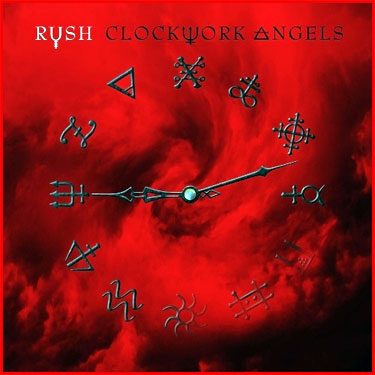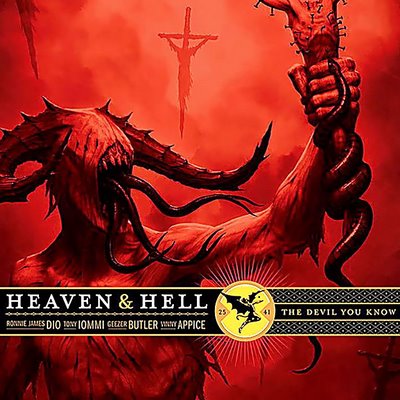The Groundhogs Best 1969-72 (1974)
Who Will Save the World? The Mighty Groundhogs!
 Tracklist
Side One
Tracklist
Side One
1. Groundhog (5:48)
From Split 1971
2. Strange Town (4:19)
From Thank Christ For the Bomb 1970
3. Bog Roll Blues (3:11)
From Who Will Save the World? The Mighty Groundhogs 1972
4. You Had a Lesson (5:56)
From Hogwash 1972
Side Two
5. Express Man (3:57)
From Blues Obituary 1969
6. Eccentric Man (4:57)
From Thank Christ For the Bomb 1970
7. Earth Is Not Room Enough (4:49)
From Who Will Save the World? The Mighty Groundhogs 1972
8. BDD (3:47)
From Blues Obituary 1969
9. Split, Pt. 1 (4:29)
From Split 1971
Side Three
10. Cherry Red (5:46)
From Split 1971
11. Mistreated (4:03)
From Blues Obituary 1969
12. 3744 James Road (7:19)
From Hogwash 1972
13. Soldier (4:51)
From Thank Christ For the Bomb 1970
Side Four
14. Sad Is the Hunter (5:21)
From Hogwash 1972
15. Garden (5:24)
From Thank Christ For the Bomb 1970
16. Split, Pt. 4 (5:50)
From Split 1971
17. Amazing Grace (2:22) John Newton
From Who Will Save the World? The Mighty Groundhogs 1972
'Clapton is God' read the graffiti on a fence in a famous photograph from Cream's heyday. But what vandals and journalists alike overlooked was that the Holy Trinity, in the context of British blues-rock guitarists, was completed by the Hendrix-inspired maestro Robin Trower and the technical polymath Tony TS McPhee. Emerging from the shadow of the keyboard-dominated Procol Harum, albeit on their 1976 masterpiece, A Whiter Shade of Pale, Trower joined forces with Jim Dewar and made four sparkling blues-rock albums. Tony McPhee was, like Clapton, a bluesman from the outset, but unlike Trower, had more than one dimension to his playing. Added to this was a profound social conscience, a willingness to experiment with electronics and the ability to sing, play (various instruments), write, produce and engineer. His outlet was The Groundhogs who became an underground cult amidst the blues-inspired heavy rock bands of the mid-seventies.
The Groundhogs were formed in New Cross, London, in 1962, as part of the British blues boom of the period, when former telephone engineer Tony McPhee joined brothers Peter and John Cruickshank - who were both born in in Calcutta, West Bengal. Named after a John Lee Hooker song, 'Groundhog's Blues', they backed the Mississippi bluesman on his 1964 UK tour. The Groundhogs issued their first record, 'Shake It' b/w 'Rock Me' as a 7" 45rpm single on the Interphon label in January 1965. Their first album, Scratchin' the Surface, was not released until November 1968 with the lineup of: Tony McPhee on vocals and guitar, Pete Cruickshank on bass, Ken Pustelnik on drums and Steve Rye on harmonica. Steve Rye left soon after to become a geology lecturer, but sadly died in London on 14th July 1992.
Blues Obituary (September 1969) was appropriately named, being recorded by The Groundhogs as a three-piece with more of a heavy rock approach. The second single 'BDD' [Blind, Deaf & Dumb] failed to chart in the UK, although it reached number one in Lebanon! However, the group's following albums: Thank Christ For The Bomb (May 1970), Split (March 1971) and Who Will Save the World? The Mighty Groundhogs (March 1972), all made the UK top ten. Thank Christ For the Bomb was concerned with McPhee's anti-war beliefs and the concept of alienation, the latter of which was more fully developed on their most successful and arguably best album. Split was about madness, ie. split personality, and showcased Tony McPhee's outstanding guitar technique, while moving the band even further from the traditional blues towards a more fully formed hard-rock. Side One has four tracks, Split Parts One to Four, that are of course thematically linked. The second side has four separate tracks. Split reached number 5, spending 27 weeks in the chart and achieving gold record status, while a single from the album, 'Cherry Red', was featured on BBC 1's Top of the Pops TV programme on 22nd April 1971.
At the request of Mick Jagger, The Groundhogs supported The Rolling Stones on the latter's 1971 British tour and released an album , Live at Leeds, recorded at the university. Who Will Save the World? The Mighty Groundhogs was the band's weakest album of the era and included Tony McPhee's experimentation on mellotron. For Hogwash (November 1972), drummer Ken Pustelnik was replaced by Clive Brooks, from the progressive rock band Egg, which ironically, gave the band an even heavier edge. June 1974's excellent album Solid saw a final return to the charts in the same year. Tony McPhee then disbanded the classic three-piece lineup in 1976 and re-emerged with a new band, including a second guitarist, Dave Wellbelove, Martin Kent on bass and the late Mick Cook on drums. This version of the group recorded two fine albums in Crosscut Saw (February 1976) and Black Diamond (October 1976, with Rick Adams replacing Wellbelove), as well as touring the UK, before themselves being dismantled. At around this time McPhee played a radio-contolled guitar, that he could play from the changing room, before appearing on stage. A short-lived Terraplane project, in 1982, featured McPhee with the late Wilgar Campbell, from Rory Gallagher's band, on drums and Alan Fish on bass.
The Groundhogs continued as a live act, rather than releasing new albums, with Tony McPhee admitting that he struggled to find enough new material to fill a 79-minute CD as many expected. In 2002, manager Roy Fisher put together a short-lived original lineup, including Cruickshank and Pustelnik, to celebrate the fortieth anniversary of the band. McPhee departed, leaving Cruickshank and Pustelnik to continue as The Groundhogs Rhythm Section, with invited frontmen such as Eddie Martin. Tony McPhee formed a new Groundhogs in 2007, with long-time bassist Dave Anderson (ex-Hawkwind) and Marco Anderson on drums. This incarnation toured England in 2008 with Dutch progressive rock band Focus and Martin Turner's Wishbone Ash. The 2009 lineup of Tony McPhee's Groundhogs comprised McPhee, Anderson and the returning Mick Jones on drums. The Groundhogs Rhythm Section's latest recruits, Bob Bowles on guitar & vocals and Jon Buckett on guitars, keyboards & vocals, joined in February 2011. As of last year, the new Groundhogs' lineup consists of McPhee, Anderson, Joanna Deacon (vocals) and Carl Stokes (drums).
The Groundhogs' Best 1969-72 was released as a double vinyl LP in 1974, coinciding with Solid, and spans the five post-Scratching the Surface albums for United Artists: Blues Obituary, Thank Christ for the Bomb, Split, Who Will Save the World? and Hogwash. Groundhog from Split is a solo blues effort, with metronomic timing, from Tony McPhee. He was to repeat this style on his solo album, The Two Sides of Tony TS McPhee (1973), which combined traditional blues with the synthesizer-laden epic, The Hunt. The compilation's first band track is the echo-heavy Strange Town from Thank Christ For the Bomb - an album that sounded dated by the mid-seventies, but now has a lightness of touch and dexterity. McPhee, Cruickshank and Pustelnik had played together in the clubs, night after night, since the early sixties, and epitomised the cohesiveness of many seventies hard rock bands. Strange Town is described by McPhee, in his sleeve notes for Thank Christ, as being about 'alienness of a community'. On first hearing, Bog Roll Blues seems like a Who Will Save the World? filler, but is actually a cleverly written and uncharacteristically chugging piece. Hogwash is possibly The Groundhogs' heaviest album, the other being Solid, but You Had a Lesson features a mellotron and shows that McPhee's solos on the instrument are rather like those of his on guitar.
Express Man is from Blues Obituary - their first heavy rock album, but with various nods to the blues past. Be warned, however, as this essential track is ommitted from CD versions of the compilation. McPhee makes a rallying call for the Eccentric Man, from Thank Christ, continuing the album's theme of 'alienation', this time of the individual. He was to later unify the ideas of madness in the relatively lengthy concept of Split Parts One to Four. For Who Will Save the World? McPhee began experimenting with synthesizers and mellotron, and, while interesting, it undoubtedly diluted his guitar playing, as on the ambitious Earth is Not Room Enough. McPhee was not to successfully integrate keyboards until the next album, Hogwash. BDD [Blind, Deaf, Dumb] is Blues Obituary's best track, combining a simple lyrical idea with a catchy hook and a memorable guitar solo. As always, the front man's lyrics are far from predictable, "I shouted and I screamed, till my face turned shades of blue." Never was Tony McPhee's guitar playing more refined and imaginative than on The Groundhog's magnum opus, Split. It is difficult to hear that album's opener in isolation from Split Part Two (or Part Four removed from Three, as it is later in the compilation), but it makes a fitting closer for the first vinyl album.
Written in September 2012






 Because at the time as you probably know, most headbangers would be walking around with denim jackets with those sew-in type badges covering the jacket with stuff like Iron Maiden, AC/DC, Whitesnake and the Scorpions etc, and quite often I'd see a Rush badge. So when I first heard a Rush song around 83/84 It was "The Body Electric" from Grace Under Pressure and I quickly realized that they weren't a metal band. I much later discovered about their hard rock and progressive roots.
Because at the time as you probably know, most headbangers would be walking around with denim jackets with those sew-in type badges covering the jacket with stuff like Iron Maiden, AC/DC, Whitesnake and the Scorpions etc, and quite often I'd see a Rush badge. So when I first heard a Rush song around 83/84 It was "The Body Electric" from Grace Under Pressure and I quickly realized that they weren't a metal band. I much later discovered about their hard rock and progressive roots.





.jpg)




 Linear Mode
Linear Mode
